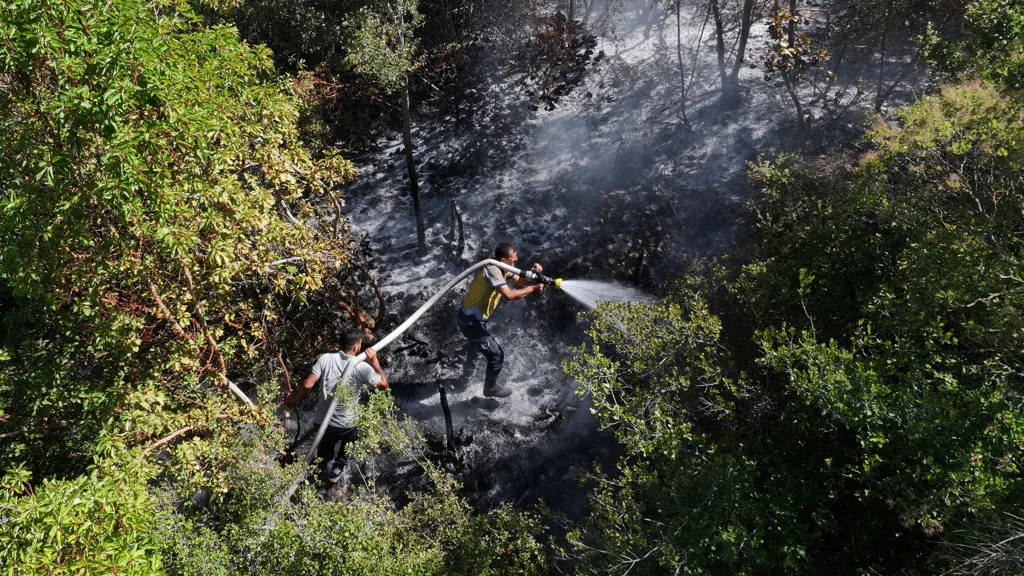Wildfires raged in Syria's coastal region on Friday, the latest blazes in a string of more than 3,500 to have erupted in recent months across the country, amid one of its worst droughts in decades.
Syria's civil defense agency, the White Helmets, said on Friday that it had called in additional teams from around the country to fight wildfires that had broken out a day earlier in the mountainous Latakia region along the Mediterranean coast.
Abdul Kafi Kayal, director of the White Helmets' coastal division, said that firefighting efforts had been hampered by the rugged terrain along with the presence of mines and unexploded ordnance leftover from Syria's 13-year civil war.
"We hope that in the coming hours, we will see some level of containment," said Mr. Kayal in a voice recording, adding that strong winds had "significantly worsened the situation, causing the fires to spread to new areas."
Earlier this week, Syria's minister of emergency and disaster management, Raed al-Saleh, told the state news agency, SANA, that wildfires had "seriously increased" since early spring, with more than 3,500 recorded across almost every governorate between April and June.
The largest concentrations have been in the coastal provinces of Latakia and Tartus, which contain dense forests now rendered tinder-dry by months of heat and insufficient rain.
The emergency response has amounted to one of the largest coordinated firefighting operations in Syria's history, said Mr. al-Saleh.
This year's drought is now regarded by meteorologists and aid organizations as the worst to hit Syria in decades.
Rainfall in the just-finished wet season was roughly 40 percent below average, and the United Nations Food and Agriculture Organization has warned that the severe drought this year may destroy up to three-quarters of the country's wheat crop, which would be enough to feed 16.3 million people for the year, putting the country's population at further risk of food insecurity.
The Syrian capital, Damascus, has not been spared.
On Friday, a forest fire broke out near the presidential palace, bringing the drought crisis to the doorstep of Syria's new government, led by President Ahmed al-Shara.
For months, the sprawling city has faced a water crisis brought on by the historically low rainfall, prompting authorities to urge residents to reduce consumption.
The crisis has only compounded the enduring fallout from the civil war.
More than a decade of conflict ravaged the country's water and electricity infrastructure, while years of underinvestment, fuel shortages and limited access to spare parts have undermined basic services.
For years, crippling international sanctions imposed on the Assad regime also restricted Syria's access to critical imports.
Although the United States has formally lifted most of those sanctions after rebels overthrew the dictatorship, Mr. al-Saleh said on Tuesday that a scarcity of resources—including diesel fuel and spare parts for firefighting vehicles—had hampered firefighting efforts and contributed to the fires' rapid spread.
In footage posted by the White Helmets on Friday, firefighting crews in Latakia province can be seen without protective gear battling ferocious blazes as large flames spit above the tree line, whipping up dust and plumes of acrid smoke.
In one video, a column of emergency vehicles are quickly surrounded by a forest fire, forcing them to flee.
Syria has been struck by repeated bouts of wildfires in recent years, including last October when more than 12,000,000 square meters of land were destroyed, according to the International Federation of Red Cross and Red Crescent Societies.
A report by the organization said that it had caused "considerable material and environmental damage, including the loss of crops critical for the livelihoods of affected residents."
Dayana Iwaza contributed reporting.
